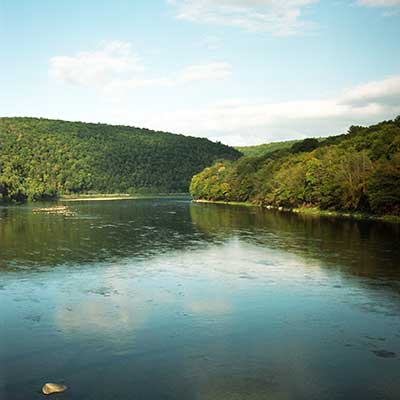Protecting Water
Protecting clean water from mining waste
Mining waste is often toxic. And thanks to lax oversight, past and present, it is too often dumped directly in water or where it threatens water.

The Delaware River is threatened by hydraulic fracturing in Pennsylvania and
potentially New York. Photo: Tracy Carluccio
Virtually all our mining work affects water resources, but we have two high priority areas:
- changing the definition of “fill” so that mining waste cannot be dumped directly into water bodies, and
- encouraging the Environmental Protection Agency to exercise its Clean Water Act authority to protect Alaska’s Bristol Bay from mining waste.
Defending clean water against dirty drilling
The fight against irresponsible drilling is practically synonymous with protecting clean water.
The exact consequences of drilling on water is unknown, in part because industry fights efforts (including ours) to pass the FRAC Pack to close the Halliburton loophole in the Safe Drinking Water Act. The FRAC Pack would require public disclosure of hydraulic fracturing toxics, and allow the EPA to regulate hydraulic fracturing.
Unfortunately, despite the lack of public disclosure, there is widespread anecdotal evidence -- polluted drinking water wells that appear in association with new drilling in the area – that concerns are real.
For more information:
Mining pollution:
Drilling pollution:
Follow Earthworks